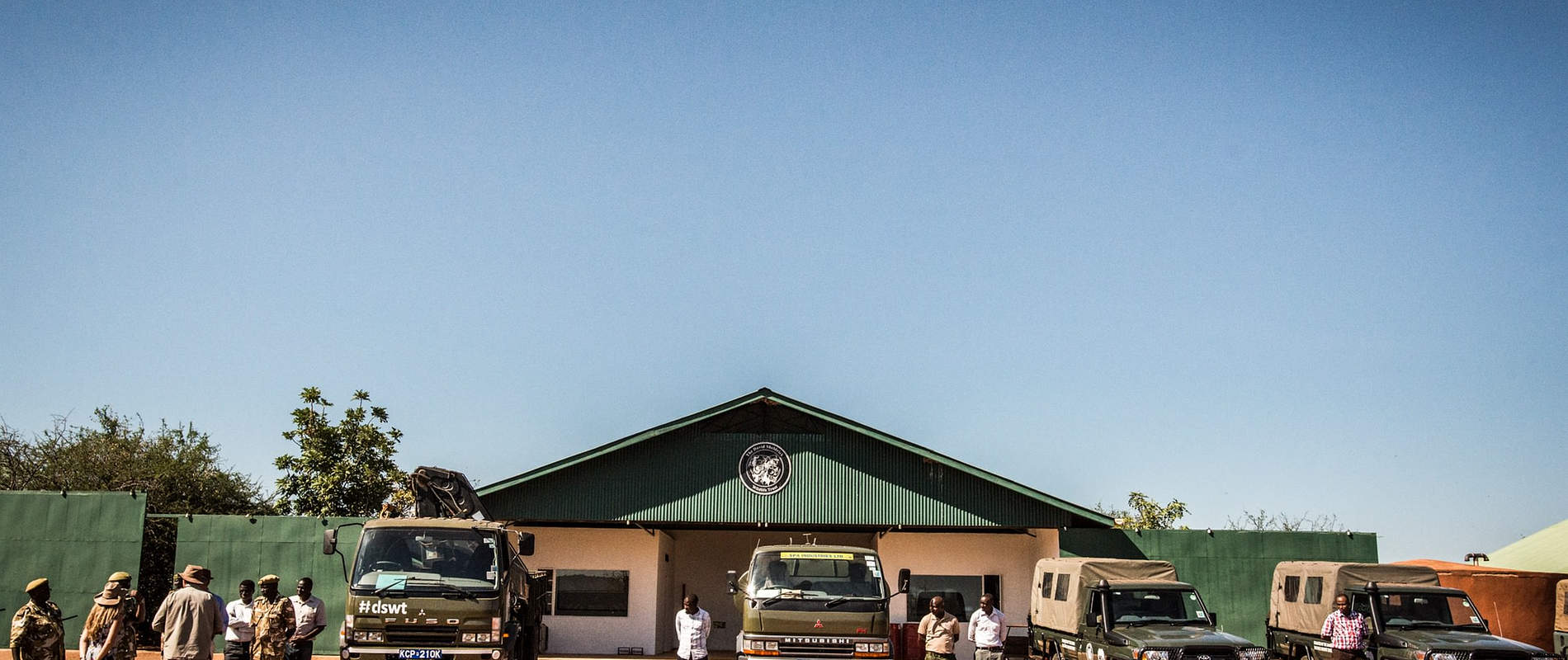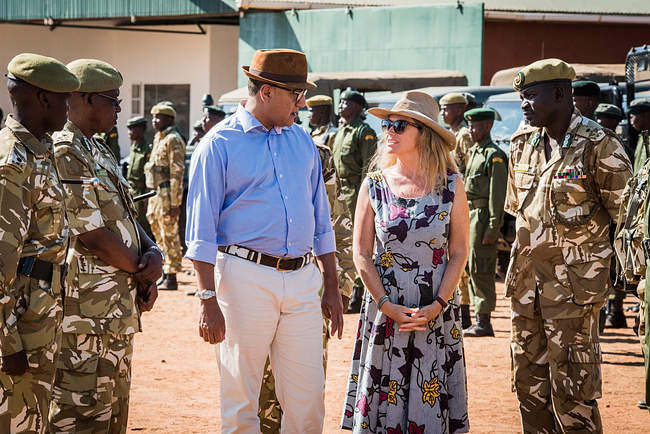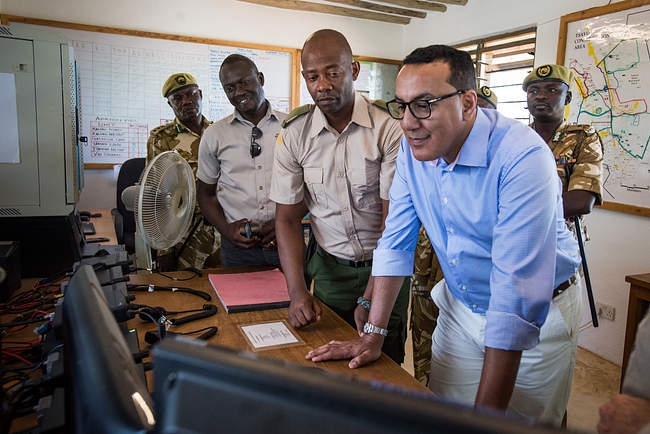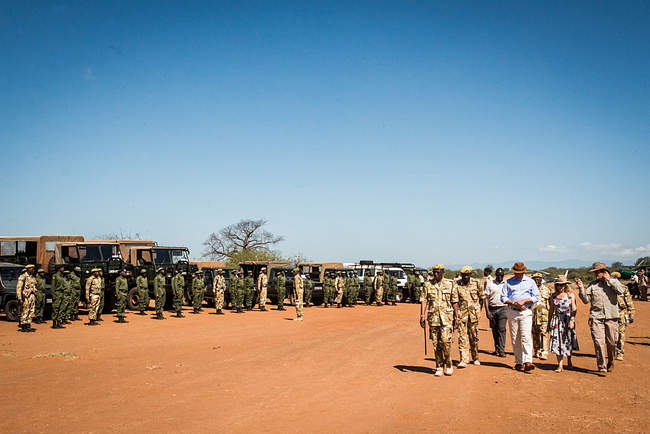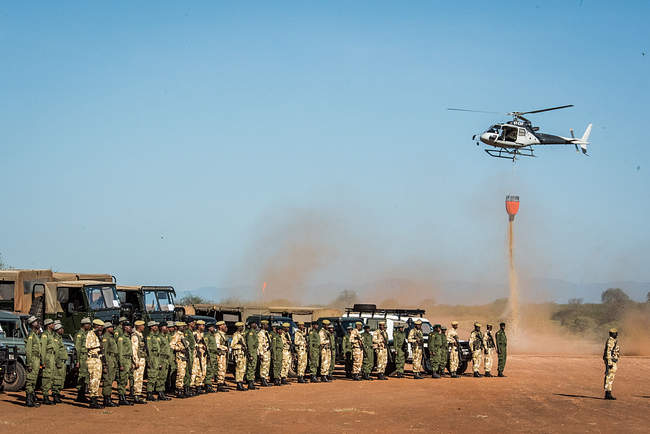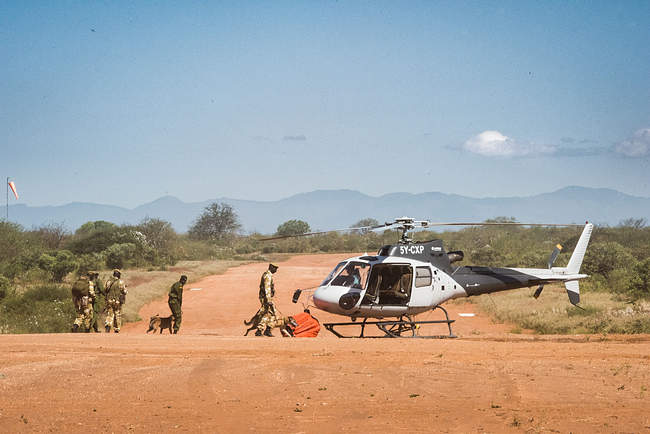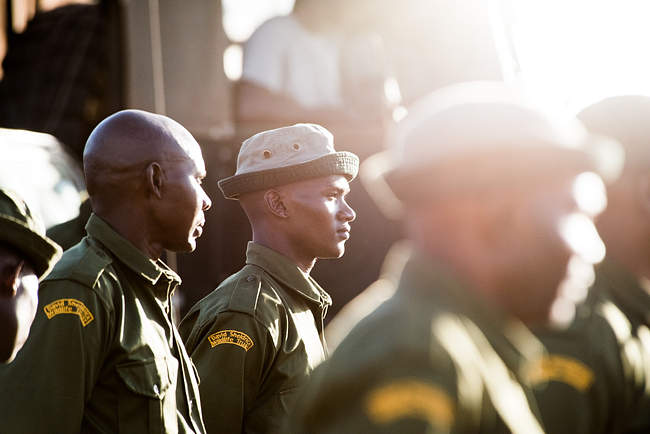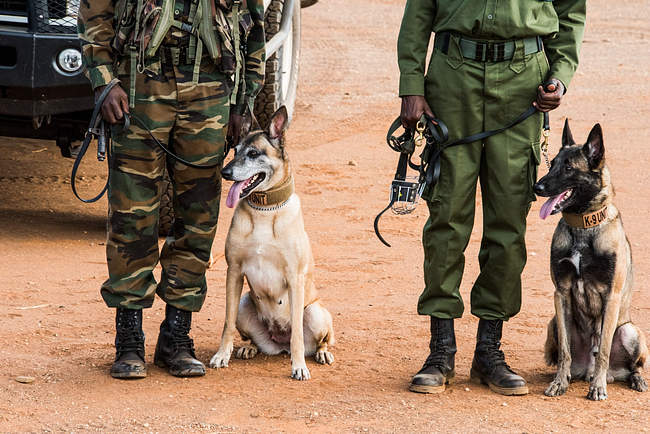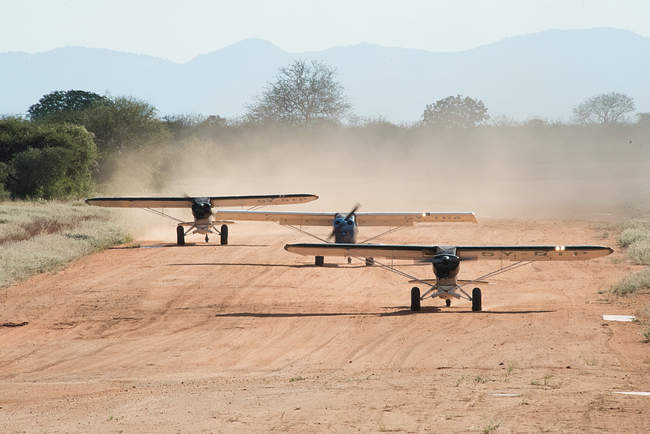In order to further enhance the Kenya Wildlife Services’ (KWS) capacity in tackling prevailing conservation challenges in Tsavo, such as the threat of poaching for ivory, rhino horn and bushmeat, human-wildlife conflict, and climate change and variability, The David Sheldrick Wildlife Trust (DSWT) yesterday donated four new vehicles to KWS.
The vehicles were handed over by DSWT CEO Angela Sheldrick at our Field HQ in Kaluku, bordering Tsavo East National Park at an event graced by the Tourism and Wildlife Cabinet Secretary Najib Balala and Senior KWS Officers including Acting KWS Director General Mr. Kimani, KWS Assistant Director TCA George Osuri, the Senior Warden Tsavo East National Park Felix Mwangangi and the KWS Veterinary Unit’s Dr. David Ndeereh.
The vehicles donated yesterday include two Land Cruisers that have been customized for KWS security operations in the Northern Area of Tsavo East National Park and the Rhino Intensive Protection Zone (IPZ) in the Southern Area of the Park. The DSWT also donated a new 10,000 litre water bowser that shall facilitate transportation of water to KWS security field stations and water pans within protected areas in order to sustain wildlife during extreme drought conditions. Additionally, the Trust donated a new Mitsubishi Fuso 10-wheeler truck fitted with a heavy tonnage crane to facilitate elephant and rhino translocation operations by the KWS Animal Capture Unit.

The DSWT and KWS have had a long standing history of collaboration in the conservation and protection of wildlife and habitat in the Tsavo Conservation Area (TCA), which all began in the 1940’s when David Sheldrick was the founder warden of Tsavo National Park. After David’s untimely death in 1977 the Trust was founded by his wife Dr. Dame Daphne Sheldrick in his memory, and a special emphasis and focus for the DSWT has always been on supporting this extraordinarily important ecosystem. Tsavo is after all Kenya’s biggest and most important National Park, home to a vast diversity of wild species, including the country’s largest population of elephants.
The Trust’s direct support to KWS in Tsavo has included; financing the development and on-going monitoring and maintenance of electric fences stretching over 178.5 km in order to mitigate human-wildlife conflict along protected boundaries; drilling, equipping and on-going servicing of 21 boreholes that sustain wildlife in protected areas during prolonged drought episodes; the donation of nine new vehicles to KWS over the last 4 years to enhance security operations; aerial surveillance support to KWS anti–poaching teams - undertaking an average of 120 hours of reconnaissance flying per month, and financing the construction and refurbishment of National Park infrastructure and buildings where needed most.

Further to this, the DSWT and KWS work in partnership with five Mobile Veterinary Units operational in important wildlife areas throughout Kenya, providing efficient and effective response to injured wild animals in need - most often the injuries are the result of poaching incidents or human-wildlife conflict.
